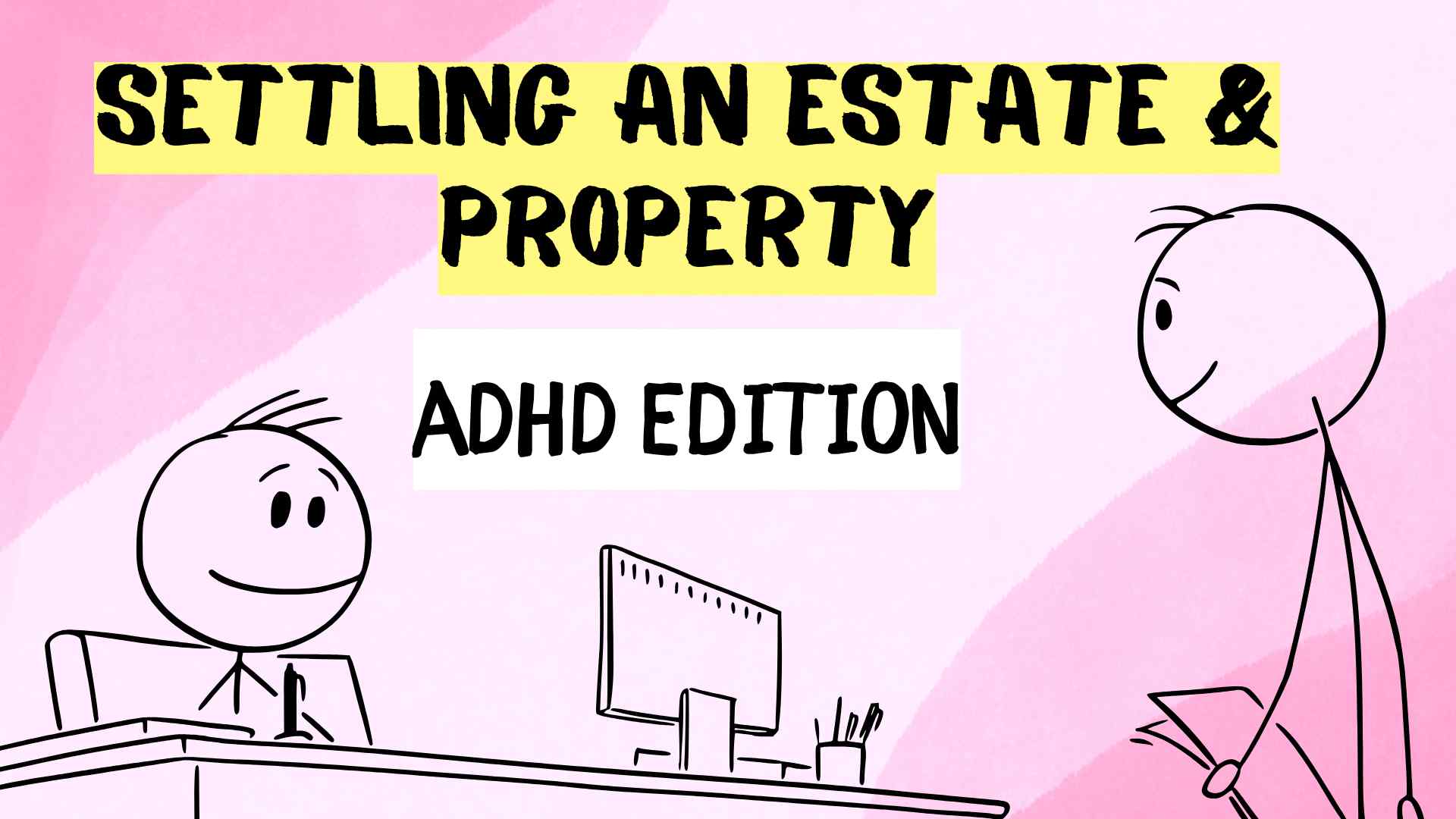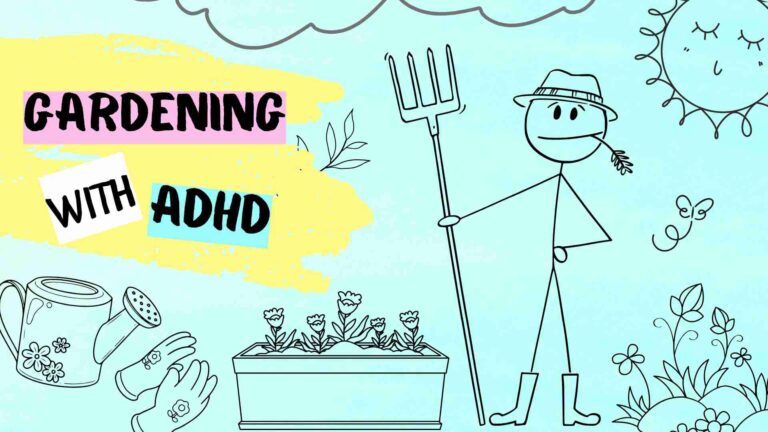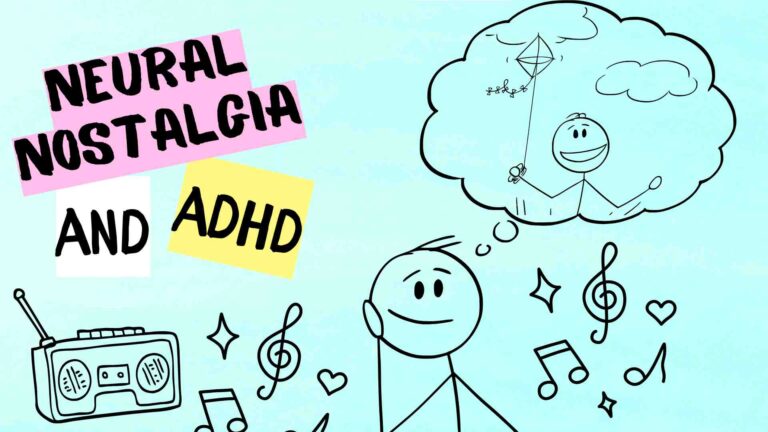Settling an Estate with ADHD: The Chaos, The Hacks, and The Reality Check

Losing someone is never easy, and having to handle their estate on top of grief can feel overwhelming. If you have ADHD, the logistical demands—paperwork, deadlines, legal processes—can be especially difficult to navigate.
Then there’s the challenge of navigating tricky family relationships along with cleaning out a lifetime of personal belongings – experiences no one looks forward to.
If you have ADHD, you will need sustained focus, organization, and follow-through to do what needs to be done – all challeges for neurodivergent brains. Most estates, from beginning to end, take months if not years to settle. It’s so easy for procrastination and decision fatigue to creep in, especially given the emotional situation.
If you’ve been working on self-improvement, now is the time to tap into those well-honed strategies that are designed just for you. If not, I’m offering ADHD-friendly tips to help you get through this, just like I did!
Table of Contents
- The Part You Play in This
- The ADHD Brain: The Paperwork Side of Settling an Estate
- Sorting Through Estate Property & Belongings
The Part You Play in This
You might not be the executor of the estate, you might be a sibling or spouse who is helping with the many details. Settling an estate is a big job, family and friends can offer their talents and time in any way they can.
The most random of needs will arise, like fixing a meal for family purging the house. Maybe you discover a collection of coins, and know a friend who is a coin expert. Maybe someone has to entertain nephews and nieces for the afternoon. Or maybe you are the peacemaker in the family and need to smooth things over.
Don’t feel that you have nothing to contribute here, you do. If you have been chosen to be an executor, there is a reason that your parent or friend chose you. They trusted you and felt you would do a good job.
I know it might be a little challenging with ADHD, but you just need to approach it with strategies your brain likes.
The ADHD Brain: The Paperwork Side of Settling an Estate
Let’s be honest—executive dysfunction is the villain in this story. The paperwork, the deadlines, the legal jargon—it’s all designed to make your brain short-circuit.
First, you will rely on your lawyer and will work closely with them. They have experience across many different scenarios and family dynamics – they’ve seen it all. My experience was pleasant, given the situation. They walked my sister and I through each step.
I was a co-executor, which was immensely helpful. Our skills and personalities balanced each other out. A co-executor might not always be a sibling, and you might not always get along with them. In my case, it worked out, we faced the decision-making together. If I was the sole executor, I would have probably relied more heavily on feedback from my spouse, other siblings, or friends.
Although my sister and I met with the lawyer, it was up to us to keep the rest of the family informed. We kept good communication lines open with the other siblings. This is so important to reduce stress and misunderstandings. Ultimately, this helped make the experience a positive one.
Hyperfocusing & the Buddy System
Having someone else’s perspective (both the lawyer and other family members) helps with all the moving parts. When we could, my sister and I divided up tasks. My hyperfocus powers kicked in, or maybe it was the buddy system, and I systematically trudged through each to-do.
To give you an idea of what those tasks were:
- executing the will
- listing all of the assets of the estate
- creating estate bank account
- paying bills
- reviewing credit cards, canceling subscriptions
- shutting off utilities, putting in the estate’s name
- paying for funeral costs
- paying medical bills, reviewing medical insurance/bills
- notifying investment and life insurance companies to pay out to beneficiaries
- dealing with vehicle titles
If you are really feeling overwhelmed, there are handy guides on Etsy. Look for “estate settelement checklist” or “executor planning binder.” They are inexpensive and probably contain a few more helpful details.
Remarkably, each of us picked up a task according to our skill. It helped immensely. If I had been stuck with the boring medical insurance, I would have procrastinated for sure! My sister’s knowledge in this area made it less of a chore for her; I in turn, picked up the tasks that were less desirable for her.
When we could, we delegated tasks over to other family members. You can even delegate tasks to your lawyer or accountant. If you feel it’s over your head, or you don’t have the time, try to find someone else who can do it.
Routine check-ins with my sister and family kept the process moving forward. Patience is your friend! Be kind to yourself and consider this as a part-time job for the next year of your life.
Micro-Tasks Are Your Best Friend
I hope I haven’t overwhelmed you! I’m not going to give you the “just sit down and do it” advice. Useless. Instead, break everything into tiny, bite-sized tasks. Instead of “handle the estate,” try “find the death certificate,” “call the bank,” or “figure out what the heck probate even means.” It really is just one step at a time.
Having a landing place to start with will solve lots of headaches and the annoying “lost” event.
-Renee’s Rabbit Hole
Create a Chaos-Proof System
The paperwork will come fast and furious. You need a designated ADHD-proof zone for all estate-related documents. A physical binder, a digital folder, or even a giant box labeled “DO NOT LOSE THIS.” Whatever works.
Before the flood began, I armed myself with a file box and index folders (and big sharpie marker!). An easy tip is to label each index folder with a topic as they come in, because there will always be the unexpected.
Another bit of advice, you will need to hold onto this info for years. It might be a box you sit in your attic, it doesn’t matter. There are some memberships in coops, like our utility company that still send an occasional, miniscule check in the mail years later. In any case, you will thank yourself that you have an simple, organized system to dip back in when you might question anything.
The estate I helped settled included a large property with out buildings and equipment. Before you know it, you’re poking around trying to find titles and manuals for things. Having a landing place to start with will solve lots of headaches and the annoying “lost stuff” event.
Deadlines and Appointments
There will be constant meetings and deadlines to keep track of. I’ll say it often: this is your new, part-time job. This job will come to an end at some point, but you have to keep things moving along.
Here are some ideas to not stall important tasks and deadlines:
- Timers, Alarms, and Fake Deadlines
ADHD brains thrive on urgency. Set timers for 20-minute work sprints, and lie to yourself about deadlines. If something is due in two weeks, tell yourself it’s due in three days. Future You will thank Past You. - Use ADHD-Friendly Tools
Trello, Notion, sticky notes, voice memos—whatever helps you keep track of things without relying on your brain to remember them. Bonus points if it involves color-coding. - Schedule ADHD-Friendly Check-Ins
Set up non-negotiable review sessions. Weekly, daily, whatever works. ADHD time blindness is real, and if you don’t actively check in, deadlines will sneak up on you like a ninja.
Sorting Through Estate Property & Belongings
Sorting through a parent’s belongings with siblings is overwhelming in ways I didn’t expect. My ADHD brain feels like it’s working against me—decision fatigue, emotional overload, and the constant battle between sentimentality and practicality.
Honestly, the flood of memories affected each sibling, no matter if we had logical brains or not. You would have thought I had trouble moving forward making decisions, by surprisingly not. Some people do, and this can be a real problem, slowing the whole machine down.
What to Keep, What to Throw
My mom didn’t get rid of anything, although we had all encouraged her for years. We knew the day of reckoning had come – but as it turns out, without her. Right off the top, there were easy decisions of things to purge. It’s something that in her lifetime, was too difficult for her to do, too emotional.
She had her stories connected with things that we did not. I understand, I would be the same way. Because we weren’t connected to everything like she way, we could move faster through some of this. Family heirlooms were definitely cherished, kept, and divided.
The “heirloom” burden can play out differently for each family. I had an aunt with no surving children. Her siblings cleaned out her home – one was a purger, one was not. The purger tossed family albums into the dump (he was never one for memories).
My siblings and I divided out what we wanted, and then let the grandchildren pick out things. It wasn’t like they were getting gold, it was just household stuff, and they were all starting new homes. What was left went to a household auction, or donated.
Overall, there was no arguments. What one sibling wanted, the other did not. If there was a dispute, there was a quick compromise.
I did opt to take things home with me that I wasn’t ready to part with. The thing is, once you give it away, it’s gone. A year later, even two, I found myself ready to move on and gave some items away. This really was the best way for me to make my peace with no regrets. Knowing you have this option can make it easier to make some decisions.
ADHD and Emotions of Cleaning Out Belongings
One of the biggest challenges is the way our brains processes grief. ADHD makes emotions intense and unpredictable, and the sudden waves of nostalgia make even small decisions feel monumental. I’ll hyperfocus on one item for an hour, but then completely avoid the bigger tasks because the weight of them feels crushing. And the pressure of keeping up with my siblings? That’s a whole other layer of stress.
What’s helped is breaking the process into manageable chunks—one box at a time, one room at a time, one decision at a time.
Use these tips to keep moving forward:
- set timers to prevent getting lost in the details
- use a “keep, donate, toss” system to make decisions faster
- work in separate rooms from each other, if you need time and space to process in the way that works best for you
- step away for a mental reset
- lean on family for guidance when you can’t make a decision
- make a family team day to tackle the bigger tasks (but have a defined goal)
- pace yourself
Most importantly, remind yourself that grief doesn’t have a deadline, and neither does settling an estate. The mess, the emotions, and the scattered thoughts are all part of the process. ADHD makes it harder, yes, but it also means an opportunity for closure. And in the end, honoring those moments matters just as much as sorting through the belongings.
Final Thoughts
Estate settlement is not ADHD-friendly, but that doesn’t mean you can’t make it work for you. The key is hacking the system—breaking it down, making it urgent, and leaning on tools and people who can help. You’ve got this. And if all else fails, just remember: this is temporary and will pass.
It is a life event, and you can honor your parent or friend by doing the best job you can.




